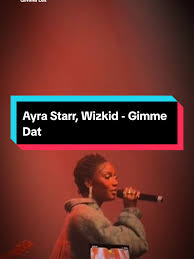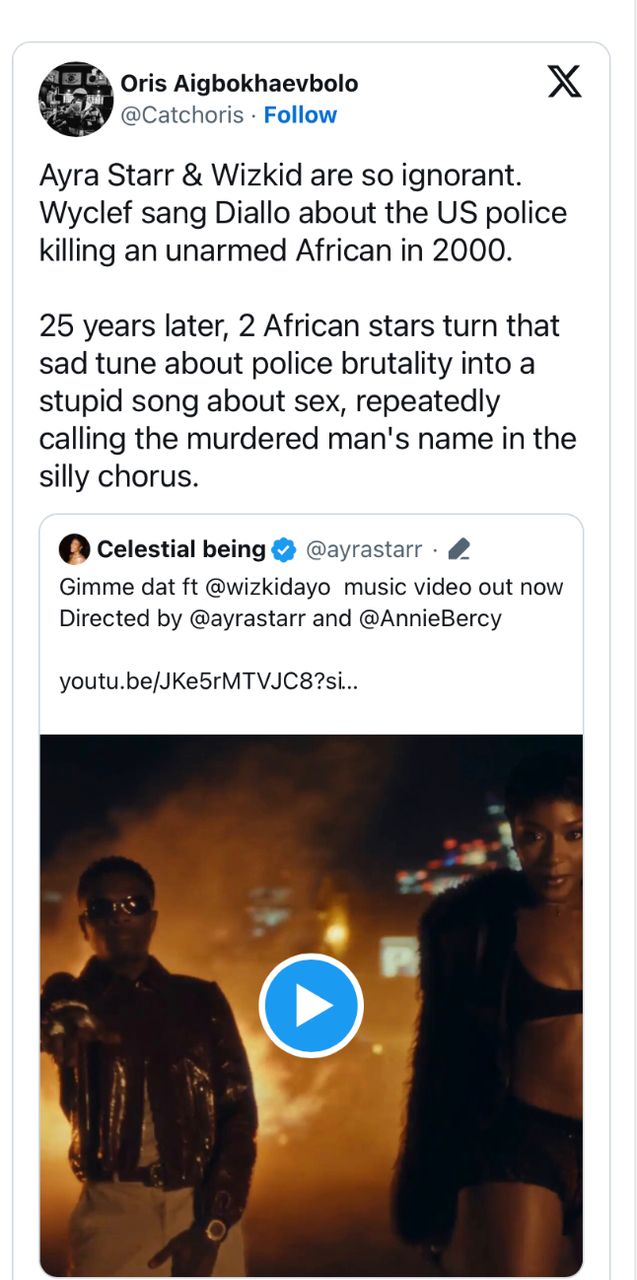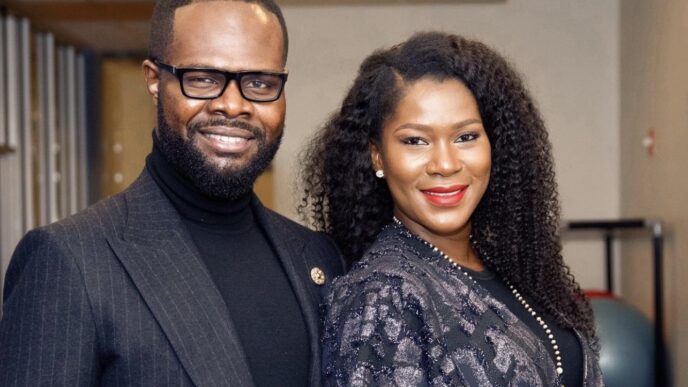Wizkid and Ayra Starr have found themselves at the center of controversy following the release of their new single, “Gimme Dat.”
The backlash stems from a part of the song’s chorus that includes the name “Diallo,” which some listeners believe disrespects the tragic story of Amadou Diallo, a Guinean immigrant who was killed by New York police in 1999.
In the official video and song, the line “Diallo, Diallo / If I give you my love, oh / Make you no disappoint, oh…”has drawn strong reactions.
The criticism became widespread after Ayra Starr posted a promo shot of the video on X (formerly Twitter), encouraging her followers to watch.
However, the post was met with anger from a user identified as @Catchoris, who called out the stars for their use of the name “Diallo.”

“Ayra Starr & Wizkid are so ignorant. Wyclef sang Diallo about the US police killing an unarmed African in 2000,” the post read.
“25 years later, 2 African stars turn that sad tune about police brutality into a stupid song about sex, repeatedly calling the murdered man’s name in the silly chorus.”
The post has now garnered over 2.5 million impressions.
While the comments triggered criticism, some fans have defended the artists. A user named @menlotanna responded with another angle:
“I get your point but you’re wrong bro. Ayra’s song samples Wyclef Jean’s ft Mary J Blige ‘911’ which is actually a love song. And the ‘Diallo’ in Ayra’s chorus doesn’t reference the song you’re referring to because the notes in these songs are totally different.”

However, not everyone agreed. Another user, @seanpepisky, voiced discomfort, stating: “I was honestly shocked when I heard the song. It felt off.
That name carries pain, history, and a real story that shouldn’t be twisted like that.
I kept hoping Wyclef would step in and say something, maybe remind them what Diallo actually meant.”
Moreover, the issue raises questions about how artists should handle sensitive names or themes.
Therefore, while the use of the name “Diallo” in a love song may have caused pain for some, the reaction it drew reminds that conversations around music, history, and respect must be handled with care.













